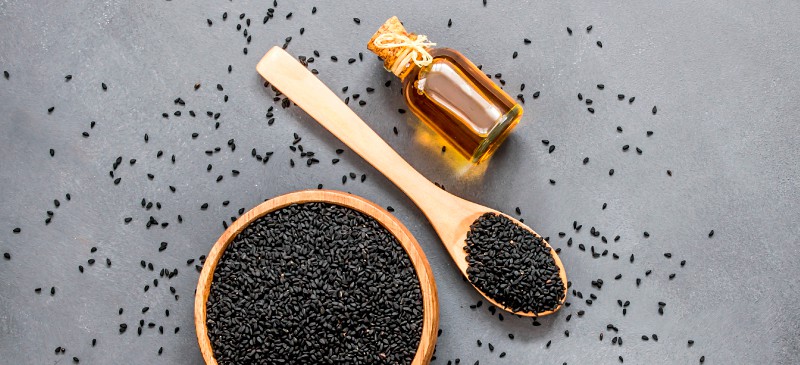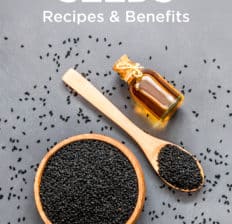This Dr. Axe content is medically reviewed or fact checked to ensure factually accurate information.
With strict editorial sourcing guidelines, we only link to academic research institutions, reputable media sites and, when research is available, medically peer-reviewed studies. Note that the numbers in parentheses (1, 2, etc.) are clickable links to these studies.
The information in our articles is NOT intended to replace a one-on-one relationship with a qualified health care professional and is not intended as medical advice.
This article is based on scientific evidence, written by experts and fact checked by our trained editorial staff. Note that the numbers in parentheses (1, 2, etc.) are clickable links to medically peer-reviewed studies.
Our team includes licensed nutritionists and dietitians, certified health education specialists, as well as certified strength and conditioning specialists, personal trainers and corrective exercise specialists. Our team aims to be not only thorough with its research, but also objective and unbiased.
The information in our articles is NOT intended to replace a one-on-one relationship with a qualified health care professional and is not intended as medical advice.
What Are Nigella Seeds? Top 5 Benefits + How to Use
December 13, 2021

Not only are nigella seeds used similarly to cumin, sesame and fennel seeds in cooking, but they’re also the main ingredient found in black seed oil and kalonji, a natural remedy that has been used for centuries to help support the immune system.
Nigella seeds and kalonji (the Hindi name for this plant) are full of antioxidants, such as polyphenols and tocopherols, that fight free radical damage and oxidative stress, both of which contribute to aging and many diseases. Active constituents found within these seeds have also been shown to have cardio-protective, antimicrobial, anti-diabetic and anti-cancer effects.
What Are Nigella Seeds?
Nigella seeds are small, angular black seeds that look like dark sesame seeds. They are grown on the Nigella sativa plant, which is in the Ranunculaceae plant family.
These plants grow throughout parts of the Middle East and Eastern Europe, such as in Turkey and Syria. The plants’ seeds are considered to be the most valuable part contributing to beneficial health effects.
They have culinary uses and are also the source of black seed oil, which is rich in protective phytonutrients, such as thymoquinone and thymol.
Most often nigella seeds are used in Indian, Middle Eastern and North African cuisines. These tiny seeds have a flavor that’s described as strongly aromatic and savory with “notes of onion, oregano, and black pepper.”
You’ll find them in things like soups, stews and curries. They also add a bit of crunch to recipes such as breads and can taste nutty to some people.
What are nigella seeds also known as?
Other names that these seeds go by include:
- onion seed
- black cumin
- black onion seed
- black sesame seeds
- habat-ul sauda (its Arabic name)
Does this mean that black cumin seeds are the same as nigella seeds? Actually, no.
These names are confusing because nigella seeds are not related to cumin (Cuminum cyminum). However, they are commonly combined with spices like fenugreek, mustard seed, fennel seed and cumin seeds depending on how they’re used.
Benefits
What are nigella seedsgood for? Below are some of the benefits associated with the Nigella sativa plant and kalonji:
1. High in Antioxidants and Anti-Inflammatory Compounds
Like other darkly colored seeds, such as black beans or pomegranate seeds, nigella seeds contain a number of antioxidants, such as thymoquinone, the most pharmacologically active ingredient found abundantly in these seeds.
Studies have identified the following active constituents within nigella seeds:
- Polyphenols and tocopherols
- Thymoquinone and its derivatives, such as dithymoquinone, thymohydroquinone and thymol , carvacrol, t-anethole and 4-terpineol
- Essential (volatile) oils
- Alkaloids
- Saponins
- Fatty acids, namely linoleic, oleic, palmitic and stearic acids
Studies have found that these antioxidants, especially thymol and dithymoquinone, have the potential to protect against cellular damage, which may lower the risk for developing certain diseases, including heart disease, neurodegenerative diseases, autoimmune diseases and some types of cancer, such as pancreatic and breast cancer. The seeds also seem to increase antioxidant pathways, such as those related to glutathione and superoxide dismutase.
Some of these compounds also have anti-inflammatory abilities that make them helpful for fighting pain and swelling, symptoms that occur in people with conditions such as arthritis. Certain animal and human studies have found that kalonji can reduce markers of inflammation affecting the joints, brain, spinal cord, liver, heart and digestive system.
A 2016 study, for example, demonstrated that Nigella sativa could improve inflammation and reduce oxidative stress in patients with rheumatoid arthritis, suggesting the seeds can be a beneficial adjunct therapy in this population of patients.
2. May Help Fight Infections
According to one review, karonji is one remedy that holds benefits including the ability to boost functioning of the immune system, activate and suppress immune specialized cells, and interfere in several pathways that eventually leads to improvement in immune responses and defense system.
There’s evidence that certain compounds found within nigella seeds have natural antibacterial properties, making them useful for fighting strains of bacteria that can contribute to infections like bronchitis, ear and skin infections, and more.
Promising research has connected Nigella sativa to multi-drug-resistant bacteria. This is a really big deal because these so-called “superbugs” are becoming a significant public health risk.
One study found that extracts taken from nigella seeds could protect against MRSA (methicillin-resistant Staphylococcus aureus), a dangerous type of bacteria that can lead to serious infections that are hard to control.
3. Support Metabolic and Cardiovascular Health
A 2017 meta-analysis found evidence that Nigella sativa supplementation can help with management of healthy blood sugar, blood pressure and cholesterol levels due to its hypotensive, calcium channel blockade and diuretic properties that help manage blood flow and blood lipid levels.
It may also help improve fasting and average blood sugar levels in people with insulin resistance/type 2 diabetes, plus potentially reduce the risk for diabetes-related complications.
4. Can Soothe the Digestive System
Traditionally, kalonji has been used to help treat diarrhea, stomach ulcers, kidney dysfunction and liver-related problems.
Some studies suggest its compounds may protect against liver and kidney toxicity damage and support general gut health due its ability to fight against oxidative stress and inflammation.
5. Help Sooth Inflamed Skin
Black seed oil and kalonji may help with common skin concerns like acne and eczema thanks to their antibacterial and anti-inflammatory properties. Some people also find they’re helpful for psoriasis and rosacea.
How to Use
Most often, nigella seeds are lightly toasted and then ground before being added to recipes — however, they can also be added whole just like sesame seeds.
Look for whole, dried nigella seeds at places like Indian and Middle Eastern markets, large health food stores, herbal shops, or online.
Keep the seeds stored in a tightly sealed jar somewhere that is dry and cool. Ideally, try using the seeds within about six months.
Supplement Types and Dosage:
If using kalonji as a supplement, look for capsules or soft gels that can be taken by mouth. Some people also prefer to supplement with the whole/raw seeds instead by mixing them with honey or water and drinking them.
Additionally, nigella seeds are used to make essential oil and topical treatments that can diluted and applied topically to the hair or skin.
If taking Nigella sativa extract or capsules, begin with a dose between one and two grams per day. This amount has been shown in studies to cause significant improvements in certain inflammatory markers without high risk for side effects.
In some cases, doses up to three grams a day for three months may be used, but it’s best to start low and increase as needed when working with a doctor.
Generally, Native sativa and kalonji supplements are used for about four to 12 weeks at a time.
If using black seed oil, always make sure to dilute it with a a few teaspoons of a carrier oil like coconut or almond oil. Start by mixing one drop of pure oil to one tablespoon of a carrier oil.
A few drops of oil can be added to hair products like shampoo and conditioner. You can also add one to two drops of 100 percent pure, therapeutic-grade and certified USDA organic black seed oil to beverages such as tea.
Here are other dosage recommendations if taking black seed oil internally:
- For diabetes: 1 gram of black seed powder taken twice a day for up to 12 months.
- For high blood pressure: 0.5–2 grams of black seed powder daily for up to 12 weeks or 100–200 milligrams black seed oil twice daily for eight weeks.
- To improve sperm function: 2.5 mL black seed oil twice daily for two months.
- For asthma: 2 grams of ground black seed taken daily for 12 weeks. Also, 15 mL/kg of black seed extract has been used daily for three months. A single dose of 50–100 mg/kg has also been used.
Recipes:
There are lots of different ways to add nigella seeds to your diet. Here are some ways that these seeds are typically enjoyed around the world:
- Used to flavor curries and stews
- Added to vegetarian dishes, such as rice pilafs, root veggies soup or lentil soup
- Incorporated in stir-fries, often made with squashes to help bring out their flavor
- Used when making pickle brine
- Added to naan bread and other breads to provide flavor and crunch
- Sprinkled on or mixed into oatmeal, smoothies or yogurt
- Added to pancakes, bagels, crepes or scones
- Garnished on salads
- Mixed into chai tea and lattes
Here are some recipe ideas for using nigella seeds:
Substitutions:
Are nigella seeds the same as sesame or fennel seeds? As mentioned above, they are not the same as other seeds — such as cumin, fennel or sesame — but they’re used very similarly to these seeds, meaning they can take on both sweet and savory flavors.
Cooks often find that the best substitutes for nigella seeds include:
- sesame seeds
- celery seed
- cumin seed
- poppy seed
- black sesame seed
- caraway seed
- fennel seeds
Nigella also tastes similar to onion and oregano, so using the dried forms of these plants is a good way to mimic the flavor of nigella.
Risks and Side Effects
Kalonji and black seed oil may cause allergic reactions and rashes when taken by mouth or applied to the skin. Before using these products topically for your skin and hair, it’s a good idea to perform a patch test to make sure you don’t have a negative reaction to the oil.
Kalonji and its components may influence blood clotting, so avoid using if you are taking blood-clotting medication unless working with a doctor.
To be safe, it’s best not to use kalonji while pregnant since this supplement may possibly slow down uterine contractions.
Conclusion
- Nigella seeds are tiny black seeds that grow on the Nigella sativa plant. These seeds can be consumed whole and are used to make black seed oil and kalonji, a natural medicine with a wide range of traditional uses and potential benefits.
- Studies suggest these seeds can help fight and prevent some infections, types of cancer, high cholesterol, blood sugar levels, diarrhea, inflamed skin, and poor liver and kidney function.
- Other possible health benefits of this oil include help for diabetes, high blood pressure, acne, eczema and hair loss.
- You can add the seeds to soups, curries, stews, breads and other recipes.
- Kalonji is usually taken in capsules form, while black seed oil is applied to the skin or sometimes taken internally.
- Always buy 100 percent pure, therapeutic-grade, certified USDA organic black seed oil if taking it by mouth.




